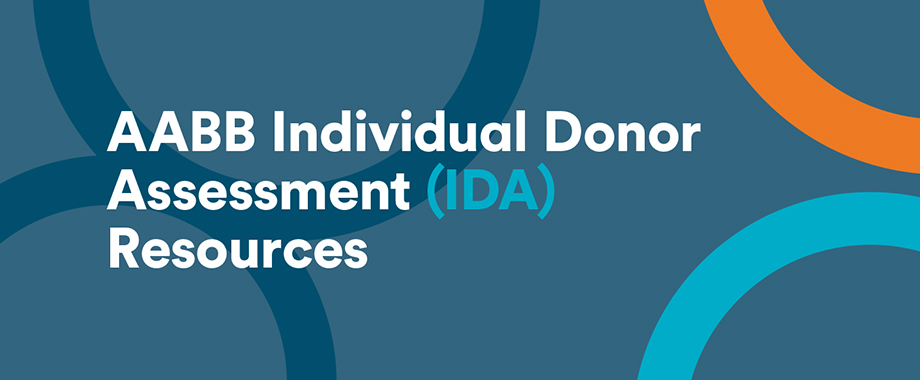
AABB strongly supports the FDA’s final guidance “Recommendations for Evaluating Donor Eligibility Using Individual Risk-Based Questions to Reduce the Risk of HIV Transmission by Blood and Blood Products,” which represents a landmark advancement for the blood community and our country. Individual Donor Assessment (IDA) eligibility protocols will improve the accuracy of risk assessment for all blood donors and increase the pool of eligible donors through the reduction of unnecessary deferrals.
AABB has developed resources designed to empower our community with the knowledge and training necessary to achieve successful implementation. This includes understanding and appreciating the social significance of these changes.
AABB is offering all resources and educational programs free to the community.
The following resources were developed in consultation with LGBTQ+ organizations and in partnership with Canadian Blood Services and are consistent with FDA’s January 2023 draft guidance.
This resource is designed to help blood center staff address donors’ questions and concerns about the new IDA protocols.
This resource outlines the science that confirmed moving to an IDA approach to determine blood donor eligibility could be done safely and effectively, while continuing to ensure the safety and availability of the blood supply.
This chart is designed to show blood center staff how various deferral criteria have been updated.
This starter resource is designed to help blood center staff engage in sex-positive conversations with new or returning donors, which will ensure a positive donation experience and reinforce the blood community’s commitment to a diverse, equitable, inclusive and accessible environment for all. This resource will accompany the forthcoming AABB education series, which will provide more detailed advice and guidance.
This resource includes key messages to help blood center staff prepare for questions they might receive from donors and to equip them to have sex-positive conversations with new or returning donors.
The April 2023 issue of AABB News is devoted to IDA and includes features on the nuances and history of IDA and what blood collectors can expect in the near future. An accompanying article also highlights the growing number of countries that have changed donor assessment screening protocols in recent years. In addition, another feature provides insight from AABB institutional members about preparations to implement the FDA eligibility changes.
This resource is designed for blood collection facilities to help inform donors and the public about the process of implementing IDA. AABB has developed talking points and FAQs to help blood center staff answer questions, support accurate proactive communications, and offer more information about the timeline for implementation.
AABB has developed a comprehensive e-learning educational series and a train-the-trainer program to empower our community with the knowledge and skills to achieve successful implementation of FDA’s new individual donor assessment (IDA) policy, while understanding and appreciating the social significance of these changes.
The goal of these programs is to ensure blood collection facility staff advance welcoming and inclusive spaces, successfully navigate donor conversations, answer any questions in a knowledgeable and respectful manner and, ultimately, build longstanding relationships with new, returning and existing donors.
To register, please click on one of the links above for complimentary access to the training module(s). If you are not an AABB member, you will be prompted to create a non-member account at no charge. Once registered, you will receive an automated email with instructions to access the program(s) on the AABB Education Platform.
These training videos are intended for all donor-facing staff and others working in blood collection facilities who are interested in learning more about IDA and how to create an inclusive environment for all donors. These modules include training on the following topics:
Creating awareness of the need for sex-positive language, introducing relevant concepts and terminology, and presenting best practices for addressing sensitive and personal topics for donor-facing staff.
Providing a safe space for donor-facing staff to discuss their concerns about implementing the new screening questions, including role-playing tactics and techniques for handling unexpected situations, and practicing these skills to build sex-positive confidence and awareness.